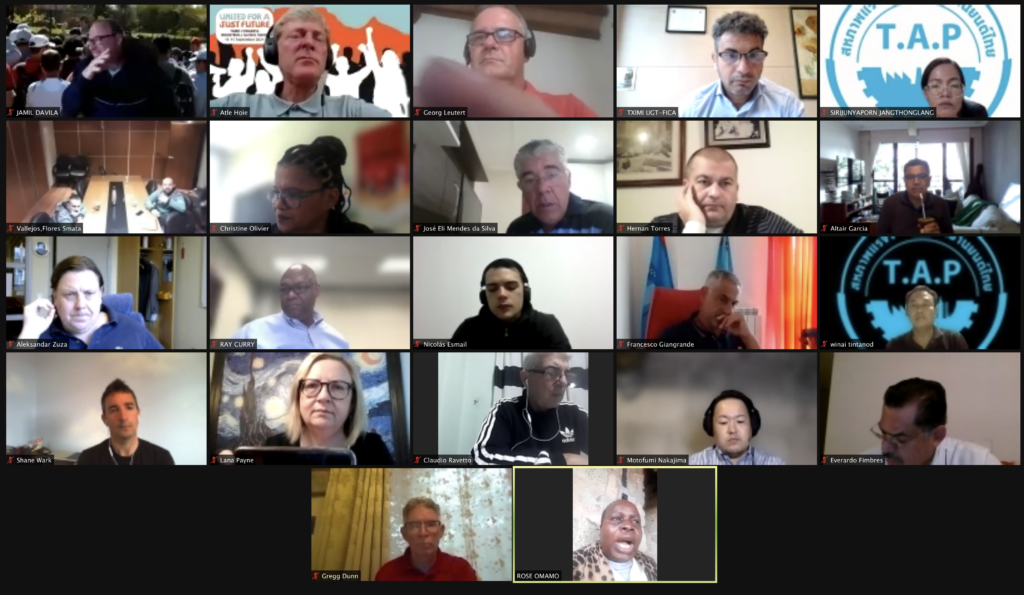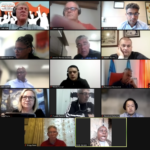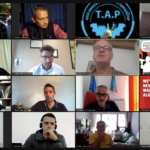15 July, 2021More than 100 representatives of auto workers from around the world met online on 12 and 13 July to collectively confront the challenges facing the sector.
The meeting was chaired by Christine Olivier, sector co-chair and the international secretary of the National Union of Metalworkers of South Africa (NUMSA). Olivier acknowledged that the pandemic had affected the sector, saying that employers had used Covid as an excuse to casualize the workforce.
Ray Curry, the president of the United Autoworkers (UAW), said that strong health and safety agreements meant that during the pandemic, many workers were safer at work than outside. Some auto producers switched production to masks and ventilators.
Industry director Georg Leutert gave an overview of the major challenges facing the sector, and developments since the last major auto meeting in Düren, Germany, in 2019. The merger of PSA and FCA to form Stellantis, the fourth largest automotive group worldwide, has brought on comprehensive global trade union coordination work with the objective of ensuring sound future industrial relations with the company, both at European and at global level.
Leutert also spoke about the importance of the new global agreement on telework with Renault. Leutert said that outsourcing to low-cost countries with poorer working conditions and worse industrial relations is still a major issue in the sector, and gave a number of examples from Serbia, Romania and Turkey.
Rosa Omamo, general secretary of the the Amalgamated Union of Kenya Metal Workers, spoke about how global solidarity could change the situation, giving the example of how the support of the VW works council had ended piece rate work at a Kenyan contract manufacturer.
Christine Olivier explained that a major purpose of the meeting was to explore ways to build union strength across the value chain, with a particular focus on the battery supply chain, which stretches from dangerous, casualized artisanal mining all the way to the highly organized auto manufacturing sector.
IndustriALL Global Union assistant general secretary Atle Høie introduced a project that IndustriALL will conduct, with support from the Friedrich Ebert-Stiftung, on organizing the battery supply chain and making the voice of workers heard in due diligence processes:
“We have affiliates across the supply chain, in mines, chemical processing, battery producing, and in end use, including auto manufacturing. Unions in auto manufacturing are typically strong, with high density and good relationships with the company. In other sectors, less so. How can we use the leverage of the stronger unions to organize and improve conditions across the supply chain?”
Judith Kirton-Darling of IndustriAll Europe spoke about the development of due diligence legislation in Europe, and how this gives momentum to campaigns to clean up supply chains. Dr Fredrik von Bothmer, human rights manager at Daimler, gave a corporate perspective on due diligence, saying that companies are very conscious of three factors: pressure from social partners like unions and NGOs, publicity and media scrutiny, and the possibility of strategic litigation. Clearly defined due diligence legislation helps companies to be able to map their responsibilities.
Georg Leutert said:
“All our affiliates along the supply chains need to get involved in due diligence. IndustriALL will do a mapping exercise to identify the affiliates involved, train them, and assist them in confronting companies about the risks of violations of basic trade union rights in their supply chains.”


